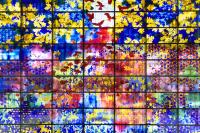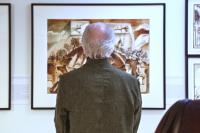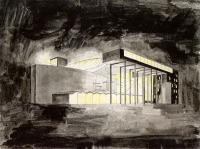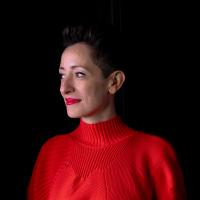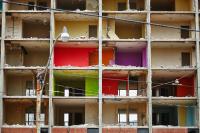Water Tower
Donauwörth, Germany
A new elevated water tank is to be built on the Schellenberg in Donauwörth, in the immediate vicinity of the "Sternschanze" archaeological monument. The concept envisages the erection of a tower-like structure, whereby this form of construction allows the required effect as a landmark to be met. At the same time, the structure plays with the historical features of the site. Historically, mountain ranges served as strategically important locations. As a result, fortifications with towers were built there as a vertical building structure that was visible from afar. The Schellenberg was also characterized by a fortification, the historically significant remains of which can be traced today as the "Sternschanze". In connection with this, the learned image of historical water towers serves as a further reference. Due to the necessary elevation of the water tanks, these have a strong verticality and become an element that characterizes the city or landscape. The supply of the population is staged.
As a building for the population, the water tower in Donauwörth is consistently thought of further. It not only serves as a reservoir, but is also made accessible to the population in the form of a viewing platform. In addition, the water technology is staged by the glazed first floor. On the one hand, this offers the opportunity to bring the relevance of the topic of "water supply" closer to the population, and on the other hand, it provides a fundamental impulse to enhance the value of the "Sternschanze" archaeological monument by offering an overview of the entire area. Thereby not only the Sternschanze in its holistic form can be comprehended, but additionally a far view on the historical old town of Donauwörth and the Danube valley can be generated.
The new water tower is located south of the opening square to the new residential development "Alfred Delp Quartier" and north of the ground monument Sternschatze, a park-like structure. The water tower is not defined as a space-forming, square-limiting element, but as part of the green area, which is characterized by old trees. This positioning ensures that the parking space has an impact on the newly created square. At the same time, moving away from the infrastructural structure leads to a strengthening of the residential development that forms the square and of the Alfred Delp Pavilion as a central urban element. Additional pathways through the park will be created and linked to the new path network defined in the urban development framework plan.
Due to its self-image as part of the parking area, the water tower refers in its formulation to the structure of a tree. An elevated core of monolithic, board-formed insulating concrete forms the basic structure, to which an interlocking flat steel mesh is attached. This also serves as a support for the steel-wound stairs and for the roof of the viewing terrace. In doing so, the concrete body creates an analogy to the density of the foliage. In addition, the structure's own red tonality plays with the seasonally changing colors of the surrounding trees. The ground-level elevation, including glazing, serves on the one hand to provide a view of the water technology, and on the other hand it creates a kinship with the appearance of a group of trees with their permeability below the base of the branches. The flat steel mesh with numerous staked branching points, on the other hand, abstractly translates the image of branch structures.
The floor plan concept follows the radial structure of a cut tree trunk. The core is the stainless steel water tank with a capacity of 1700m3. All around the tank are inspection walkways, which can be reached via a ladder system. Below the tank, at ground level, is the control room, the necessary airlock, the inspection gates and the emergency power generator. In the basement, which can be seen from the control room via an air space, is the pump cellar including a toilet. Enclosing the concrete core, a staircase system is arranged on the outside, which functions as an access to the covered viewing platform. There, rainwater collects in a trough in the floor, evaporating only slowly and once again staging the theme of water.
- Architects
- Becker Architects Planners BDA
- Location
- Donauwörth, Germany
- Year
- 2020
- Client
- Stadt Donauwörth
- Team
- Roland Schafroth, Michael Becker
- GFA
- 352 m2
- GA
- 4.092 m3
- Competition
- 3rd place






